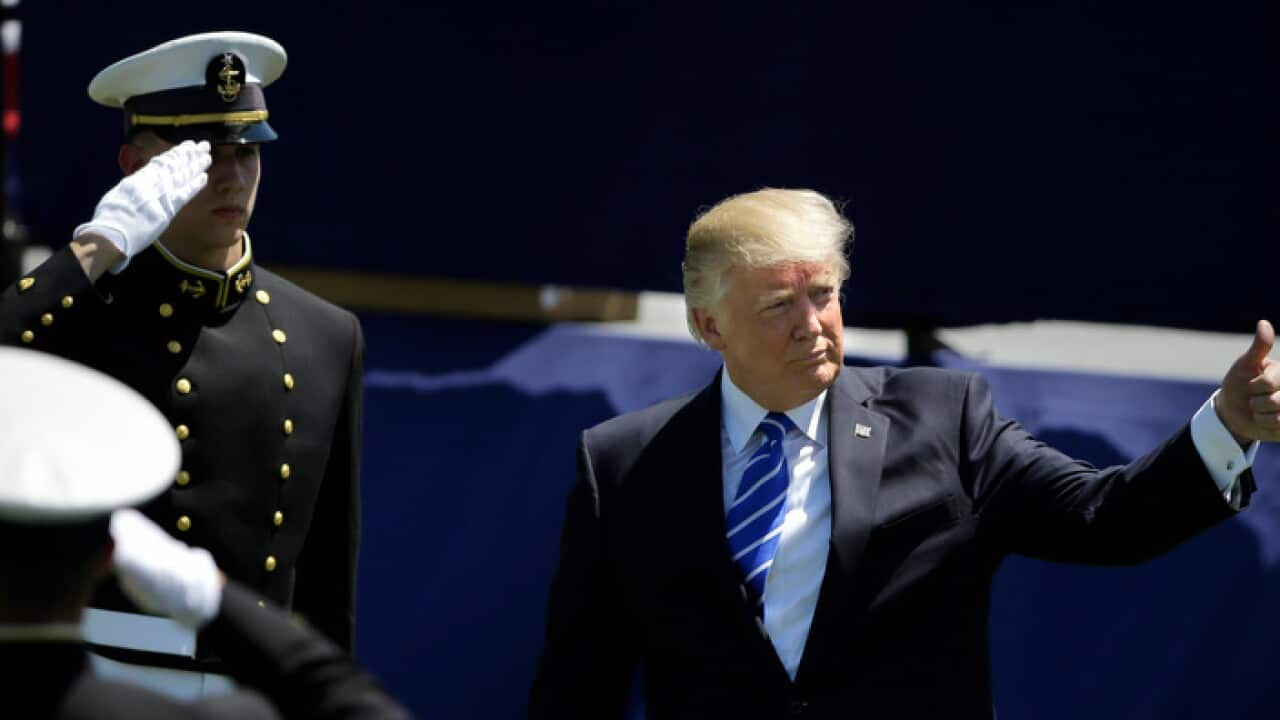Trump responded by once again denying any links to Moscow, but the appointment of a special counsel with sweeping powers dramatically raises the stakes in a crisis threatening to paralyze his presidency.
The Republican leader, who has struggled to shake off suspicions that Russia helped put him in the White House, has been accused of seeking to block the investigation by sacking FBI chief James Comey.
Under pressure to provide guarantees to Congress and the public that the Russia probe will continue unhindered, Deputy Attorney General Rod Rosenstein tapped Robert Mueller -- a widely-respected figure who headed the FBI for the decade after the 9/11 attacks -- to take over the reins.
"Based upon the unique circumstances, the public interest requires me to place this investigation under the authority of a person who exercises a degree of independence from the normal chain of command," Rosenstein said in a statement.
Related reading

The lawman's lawman: Who is Robert Mueller?
A New York-born Vietnam war vet, Mueller has a reputation as a tough lawman who once even stood up to a president.
He will head up the FBI's ongoing probe of "Russian government efforts to influence the 2016 presidential election and related matters," with the authority to prosecute crimes unearthed by the investigation.
Trump reacted swiftly, without directly commenting on Mueller's appointment.
"As I have stated many times, a thorough investigation will confirm what we already know -- there was no collusion between my campaign and any foreign entity," he said in a tersely-worded statement.
"I look forward to this matter concluding quickly."
Ryan says we need facts on Trump memo
Independent of hierarchy
Capping days of political drama in Washington, Mueller's appointment came as Trump fends off a stunning series of allegations including claims he shared US secrets with Russian officials in the Oval Office.
Pressure has spiked in Congress for an independent probe into ties between Trump's campaign and Moscow, which US intelligence chiefs accuse of interfering to sway the election in the Republican's favor.
"We need the facts," Republican House Speaker Paul Ryan said.
Related reading

Putin 'ready to provide recording' of Lavrov-Trump exchange
A special counsel is empowered to conduct the investigation independent of the Justice Department hierarchy, with a dedicated staff of his choosing. The counsel is not required to consult with or keep informed the attorney general or deputy attorney generals on the course of the probe.
Mueller is specifically empowered to examine "any links and/or coordination between the Russian government and individuals associated with the campaign of President Donald Trump."
National Security Advisor McMaster defends Trump
Rosenstein's order came a week after he played a key role in Trump's firing of Comey, who had overseen the FBI's Russia investigation since last July.
The deputy attorney general penned a memo criticizing Comey's handling of the probe into Trump's defeated rival Hillary Clinton's emails, which provided the White House with the rationale for firing him -- and raised questions about Rosenstein's ability to remain politically independent.
His boss, Attorney General Jeff Sessions, was forced to recuse himself from the Russia investigation due to his own undisclosed contacts with Moscow's ambassador, Sergey Kislyak.
'Any links'
Trump has consistently rejected any suggestion of collusion between his camp and Moscow as "fake news" and complained in a speech Wednesday that he had been treated "more unfairly" than any US leader in history during his fledgling presidency.
But calls for the Russia probe to be placed in independent hands intensified this week following reports that Trump urged Comey to reel back its investigation of Michael Flynn, the national security advisor fired over concerns about his Russian contacts.
Trump's alleged pressure on Comey -- denied by the White House -- has exposed the president to accusations of obstructing justice.
Perhaps shaken by the gravity of recent developments, several congressional panels have demanded that the FBI and White House hand over records related to Comey, who has been called upon to testify before both the Senate Intelligence Committee and the House Government Oversight Committee.
Related reading

From crisis to crisis: Trump's struggling presidency
Given the politically-explosive context, Mueller's appointment was widely welcomed across the political spectrum.
During his tenure as director of the FBI, from 2001 to 2013, he served both Republican and Democratic administrations, overseeing a shake-up of a huge bureaucracy blamed for missing evidence that could have prevented the September 11, 2001 attacks, and earning high respect from both parties.
"Mueller is a great selection. Impeccable credentials. Should be widely accepted," tweeted Republican congressman Jason Chaffetz, who heads the House oversight panel.
The top Senate Democrat, Chuck Schumer, said Rosenstein did "the right thing" by appointing Mueller.
"I now have significantly greater confidence that the investigation will follow the facts wherever they lead."




